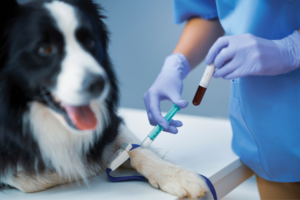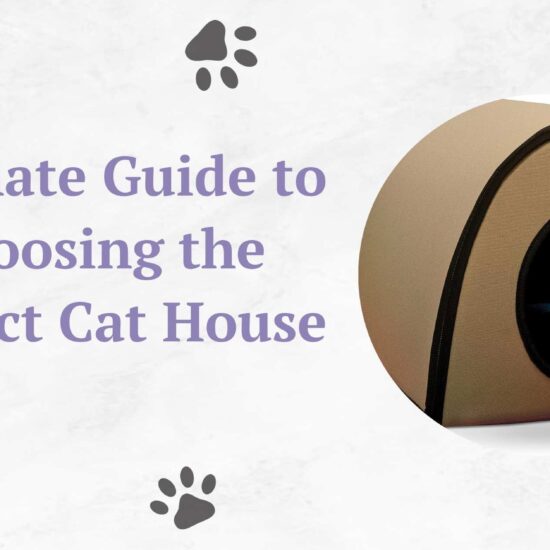As loving pet owners, we all want to ensure our furry companions live their best lives. One of the most fundamental aspects of pet health care & wellness is regular exercise. Think of exercise as a powerful, preventative medicine for your pet – it helps them maintain a healthy weight, boosts their physical health, and enhances their overall well-being.
As loving pet owners, we all want to ensure our furry companions live their best lives. One of the most fundamental aspects of pet health care & wellness is regular exercise. Think of exercise as a powerful, preventative medicine for your pet – it helps them maintain a healthy weight, boosts their physical health, and enhances their overall well-being.
In this article, we’ll explore the numerous benefits of regular exercise for pets, covering everything from weight management to mental stimulation. We’ll also provide practical tips to help you and your pet enjoy the journey toward a healthier, more active lifestyle.
Table of Contents
Weight Management and Obesity Prevention
One of the most significant benefits of regular exercise for pet health care & wellness is its role in weight management. Sadly, pet obesity is an epidemic, impacting both cats and dogs. Just like in humans, excess weight puts pets at risk for serious health conditions:
- Diabetes: Obese pets are more likely to develop insulin resistance, leading to diabetes. This chronic disease requires lifelong management.

- Joint Problems: Carrying extra weight puts additional strain on joints, increasing the risk of arthritis and other painful conditions that make it difficult for pets to move comfortably.

- Heart Disease and Respiratory Problems: Excess weight can strain a pet’s heart and lungs, leading to problems like high blood pressure, heart disease, and difficulty breathing.

- Decreased Lifespan: Obesity can shorten a pet’s lifespan significantly.

Regular exercise helps pets burn calories and shed extra pounds. Even moderate, daily exercise contributes to maintaining a healthy weight and reduces the risk of these obesity-related health issues.
Improved Physical Health
Exercise goes far beyond weight control when contributing to pet health care & wellness. Regular physical activity offers numerous physical benefits:
- Muscle and Bone Strength: Exercise builds and tones muscle, improving your pet’s overall strength and coordination. Strong muscles help with everyday activities and can reduce the risk of injuries as your pet ages. Additionally, exercise puts healthy stress on bones, increasing their density; this makes bones stronger and less prone to fractures.

- Cardiovascular Health: Regular exercise gets your pet’s heart pumping! This strengthens their heart muscle, improves blood circulation, and helps regulate blood pressure. A strong cardiovascular system supports their entire body, delivering oxygen and nutrients to vital organs more efficiently.

- Immune System Boost: Studies have indicated that exercise can enhance the immune system, helping pets fight off infections and diseases more effectively. A strong immune system is essential for a long and healthy life.

- Joint Health: Moderate exercise can help lubricate joints and maintain flexibility, which is especially important for older pets or those prone to arthritis.

- Digestive Health: Exercise aids in regular bowel movements and can help alleviate issues like constipation.

- Overall Longevity: By contributing to weight management, cardiovascular strength, a robust immune system, and healthy joints, regular exercise ultimately helps your furry friend live a longer, healthier, and more active life.

Mental and Emotional Well-being
Just as exercise benefits our own mental health, it has a profoundly positive impact on our pets’ mental and emotional well-being. Here’s how:
- Stress Reduction: Exercise is a natural stress reliever for pets. It helps them release pent-up energy and decreases levels of stress hormones like cortisol. Lower stress levels can prevent a range of behavioral issues.

- Anxiety Relief: For pets who suffer from separation anxiety or general nervousness, exercise can be a powerful tool. Physical activity burns off nervous energy and can create a sense of calm.

- Boredom Buster: A bored pet is more prone to destructive behaviors like chewing, digging, or excessive barking. Exercise provides mental stimulation and challenges, reducing boredom and the negative behaviors that often stem from it.

- Mood Booster: Exercise stimulates the release of endorphins, natural mood-boosting chemicals in the brain. Consistent exercise can lead to a happier, more relaxed pet.

- Behavioral Improvement: Along with reducing destructive and undesirable behaviors, exercise encourages positive ones. A well-exercised pet is more likely to be calm, focused, and better able to learn and follow commands during training.

- Preventing Cognitive Decline: Senior pets, just like senior humans, may experience some cognitive decline. Regular exercise can help keep those doggy or kitty brains sharp!

Enhanced Bond with You
One of the most wonderful side effects of exercising with your pet is the deepened bond it creates. Activities like taking walks, playing fetch, or going on runs become shared experiences that strengthen your relationship. Your pet starts to associate you with fun, positive times, fostering trust and affection.

Furthermore, exercising together requires guidance and communication. Whether you’re teaching a fetching game or going on a walk with proper leash manners, it’s an opportunity to refine your training skills and enhance your pet’s responsiveness. This cooperative dynamic strengthens the sense of teamwork between you and your furry friend.
How Much and What Kind of Exercise?
The ideal amount and type of exercise vary depending on a pet’s breed, age, size, and overall health. Here are some factors to consider:
- Breed: Energetic breeds like Border Collies or Siberian Huskies typically require more intense and prolonged exercise sessions compared to breeds like Bulldogs or Basset Hounds.

- Age: Puppies and senior pets need shorter, gentler exercise routines.

- Health: Pets with health conditions may need limitations or modified activities. Always consult your veterinarian.

Generally, most healthy adult dogs benefit from at least 30-60 minutes of moderate-intensity exercise daily. This can be split into walks, play sessions, or swimming. For cats, aim for shorter but frequent bursts of play with interactive toys that mimic hunting.
Conclusion
Regular exercise is a cornerstone of responsible pet ownership and a cornerstone of pet health care & wellness. It’s a gift you give your furry companion that improves their physical health, mental sharpness, emotional well-being, and even strengthens your bond.
If you’re unsure where to start, consult your veterinarian. They can offer personalized exercise plans tailored to your pet’s specific needs and health status. With a little dedication and some fun activity choices, you’ll help your beloved pet enjoy a long, healthy, and active life by your side.
FAQs
Why is regular exercise important for my pet?
Regular exercise helps maintain a healthy weight, supports cardiovascular health, and promotes mental well-being.
How much exercise does my pet need daily?
Exercise needs vary by species, breed, age, and health. Consult your vet for specific recommendations.
What are some fun ways to exercise with my pet?
Activities like walking, running, playing fetch, and interactive toys are great ways to keep your pet active.
Can regular exercise help with my pet’s behavior?
Yes, regular exercise can reduce anxiety, boredom, and destructive behaviors in pets.
Are there any risks associated with too much exercise for my pet?
Over-exercising can lead to injuries. It’s essential to balance exercise with rest and monitor for signs of fatigue.












